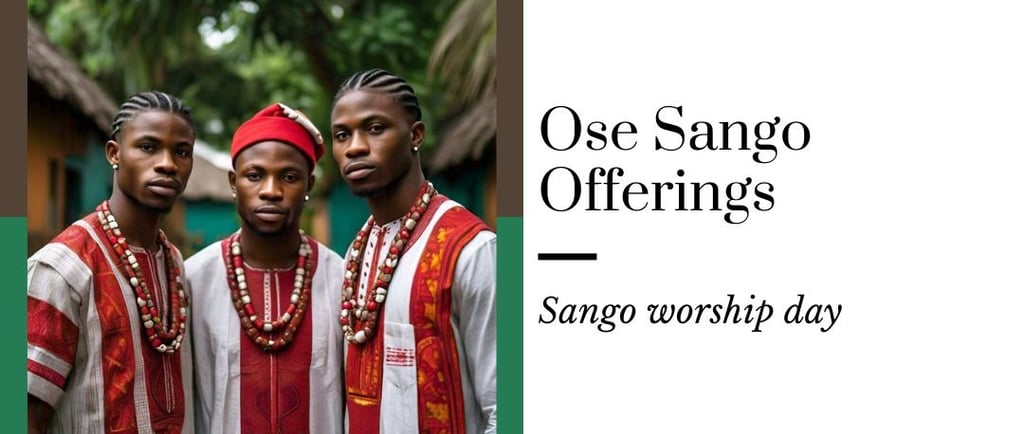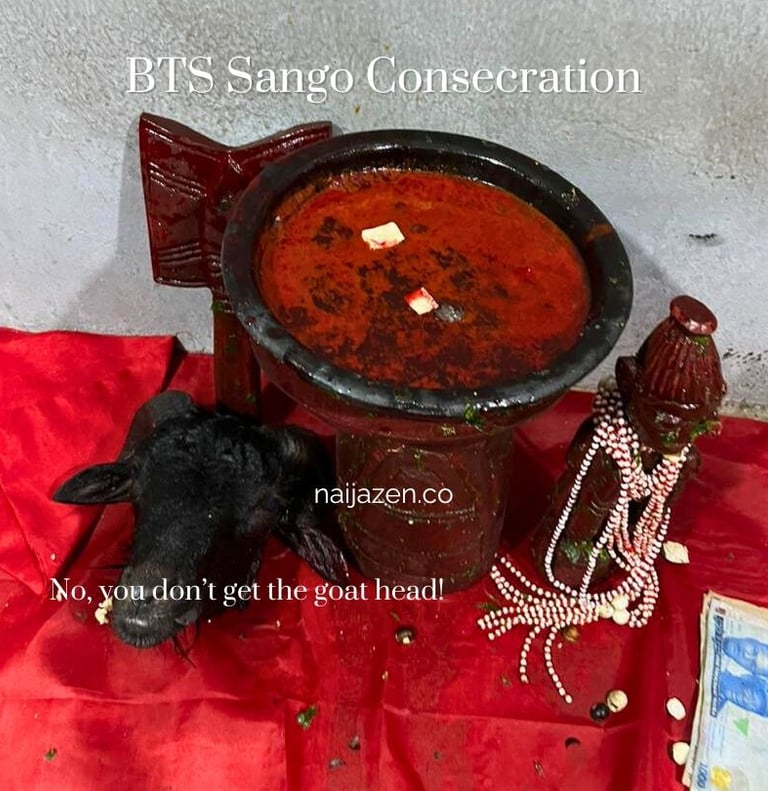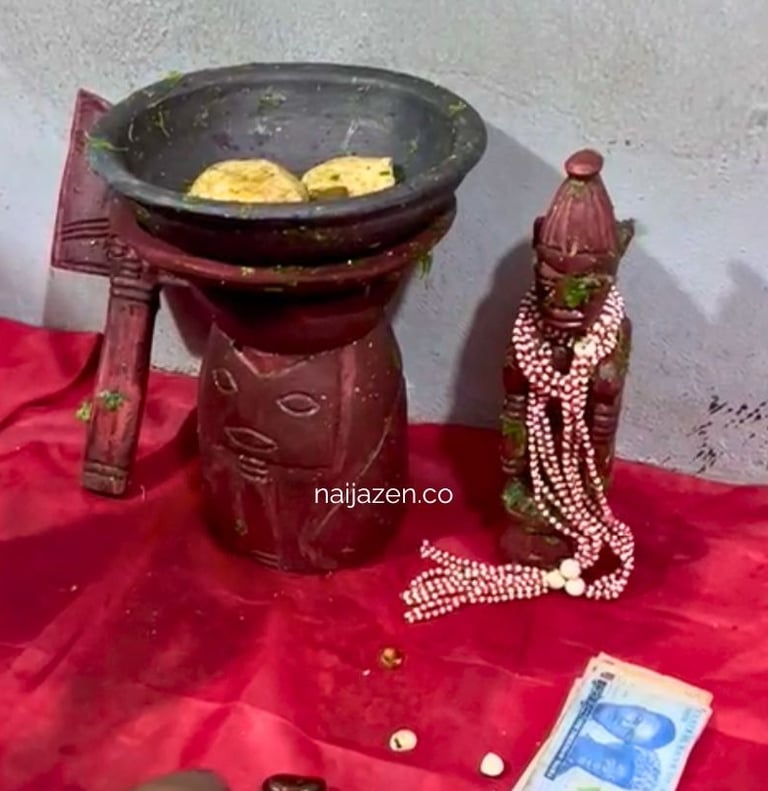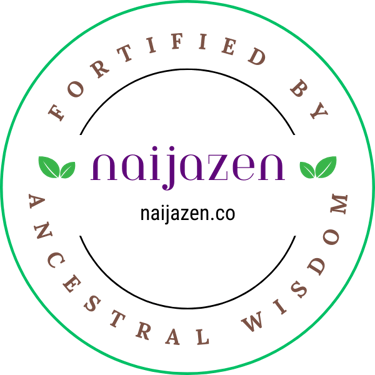Ose Sango - Sango Worship Day Offerings
Offerings and taboos for Orisha Sango - what does Sango eat, what are his taboos and should you get a consecrated orisha?
AFRICAN SPIRITUALITYIFAISESEORISHA
7/13/20245 min read


Friday was Ose Ṣàngó, Ṣàngó worship day. Ṣàngó also often spelled Shango, is the deity of thunder, lightning, fire, drums, dance and justice. One of the most loved and feared Orishas, many go to Ṣàngó for justice, protection and victory. Ose Ṣàngó is a day to pay homage, celebrate, give offerings and ask for his blessings. Ṣàngó devotees will also feed Sango and share some of the food with family and friends. I thought it would be a good time to talk about Ṣàngó's offerings and a particular taboo of his. Each Orisha has particular foods that are given to them as offerings and some have certain foods that mustn't be given to them.
In this tradition, kola nut is often used as an offering to Ifa, the Irunmole and Orishas. Whether it is for morning iwure(prayers) or on the Orisha's worship day, kola nut is offered. New initiates, devotees or those who have a consecrated Ṣàngó shrine at home should note that Ṣàngó does NOT accept Obi, kola nut. He is given bitter kola, orogbo instead. Please do not make the mistake of giving him Obi.
What does Ṣàngó eat?
Amala, which is made from yam flour and gbegiri, a Nigerian soup, made from beans. I have seen some sites erroneously station that amala is made from cornmeal. No, it is NOT. Please do not buy cornmeal, thinking you are giving Ṣàngó one of his favorite meals. Amala is one of the favorite dishes in my home city, Ibadan. His favorite meat is ram and he is also given rooster and male goat.
If you are the USA, UK, other parts of Europe or Canada, this items should be quite easy to find. Most cities have a Nigerian restaurant, you can always have some amala and gbegiri delivered if you don't know how to cook it. I suggest buying some ram or male goat from the halal store and keeping some in your freezer, so you always have some to give to Ṣàngó. Of course, this isn't an issue for those back home.
Of course, we also offer Ṣàngó oti, alcohol. Back in the day, the local gin would have been used. Nowadays, even in Nigeria, commercial spirits are used - mainly schnapps or gin. I actually think it is a shame. If we(onisese/traditionalists) returned to the use of local gin That would be a great boost to the local economies. Not to mention the fact that it is more natural. I plan on using as much local gin as I can for my offerings when I go back home.
If you have a consecrated Ṣàngó shrine, you should be taught how to appease Ṣàngó . Please note that having a consecrated shrine, whether it is Ṣàngó or another Orisha is not initiation. It is a way of tapping into the energy of that Orisha and seeking their blessings, even if you are not initiated. Consecrated orishas give you access to the energy of the Orisha and must not be confused with an altar with a statue bought at the botanica or African arts and crafts store. Of course, initiates would also have a shrine.
Oriki Sango
Reciting the orisha's Oriki(eulogy or praise song) is also an important part of the Ose or worship day. Hereare a couple of Ṣàngó oriki you can use. Oriki can be easily found online, so find one that resonates with you. There are now quite a few that have been translated into English.
Oriki Sàngó:
Sango Olukoso
Akata yeri yeri
Arabambi Oko Oya
Alaafin, ekun bu, a sa
Eleyinju ogunna
Olukoso lalu
Ina l’oju Ina l’enu
A ri igba ota, sete
O fi alapa segun ota re
Sango o
Olukoso o
Ojúoró ti n bẹ lókun tokun níí ṣe
Osibata tí n bẹ losa ni ti òsà
Apaadi to doju kọ ògiri ti ògiri níí ṣe
Ti ẹ làwá se lónìí Ewegbemi
Ewegbemi Àfònjá bawa náà se tawa
Sẹ́sẹ́ ni yóó mọ se léyìn asododo
Arin mọ ti òṣìkà léyìn
Akọ̀ mọ gba ẹbọ èké ru
Eegun ará ìlú nlá
Bí o bá gbọ ẹbọ èké mọ mọ rú
O dúró tepéle
O yawọ sáàrágàgà gba egbèje àmàlà
Alado Ègbá mọ polówó ọkà dele àwa
Nibo ni ẹ gbé bámi rí Sàngó
A o mobi Onílé sanra sí o
Nibo ni ẹ gbé bámi rí Sàngó olóore ìyá mi
A rí Ṣàngó ní ilẹ rẹ́fúrẹ́fú
A rí Ṣàngó ní ilẹ rẹ̀fùrẹ̀fù
A rí Ṣàngó ní bí ti a gbe rẹyẹ ti a o roko pẹyẹ
Igbati a roko la o rẹyẹ mọ
Nibo ni ẹ gbé bámi rí Sàngó,
Àrìrá òkò
Sango o
Iná kéré
Iná tobi kose gbamu
Taa ló le ko Ṣàngó lójú?
Taa ni Sàngó o le pa?
Sango mọ pami o
Ire ni kí o se fún mi.
TRANSLATION:
Sango
Olukoso
Ojúoró (oceanweed) that is in the ocean is for the ocean
Osibata (seaweed) that is in the sea is for the Sea
Apaadi (broken clay pot) that faces the wall is for the wall
It is your own, we are doing today
Ewegbemi (Medicine makes me successful)
Ewegbemi Àfònjá (alias)
Bless us, as well
He respects the honest person
He doesn't support the wicked person
He who rejects the sacrifice of hypocrites
Masquerade of the big town
If you hear the sacrifices of a hypocrite, don't accept it
He stands firmly
He strikes lightning quickly to collect seven hundred wraps of àmàlà
Alado of Ègbá
Do not advertise àmàlà to our house
Where do you help me find Sàngó?
We don't know where he is.
Where do you help me find Sàngó?
My mother benefactor
We see Sàngó at the land of rẹ́fúrẹ́fú
We see Sàngó at the land of rẹ̀fùrẹ̀fù
We see Sàngó where we find birds but don't find stones to kill the birds
When we find stones, we no longer find birds
Where do you help me find Sàngó,
Àrìrá Òkò
The small fire
The wide fire that no one can hold
Who can confront Sàngó?
There is no one Sàngó cannot deal with
Sango, do not deal with me
It is your favor that I want.
Oriki Sàngó:
Sango Olukoso
Akata yeri yeri
Arabambi Oko Oya
Alaafin, ekun bu, a sa
Eleyinju ogunna
Olukoso lalu
Ina l’oju Ina l’enu
A ri igba ota, sete
O fi alapa segun ota re
Sàngó's Taboos
Children of a particular orisha are expected to observe the orisha's taboos, in addition to their own taboos. Not observing taboos can negatively impact the life of the devotee and affect the trajectory of their life. Here are the main taboos for Sàngó:
Loathe Roe-buck (Eran esuro), Yam beans (Ewa Sise), and Taba Timu(I am still trying to find a translation or explanation). Luckily for those in the diaspora, these are not foods that are commonly found.
Sàngó is one of the most loved orishas. If you would like a consecrated Sàngó shrine, please contact me. Remember, having the orishas at home is a commitment, don't get caught up in the hype or trend. Do your research and be sure you are ready to have the energy of Sàngó in your home.




